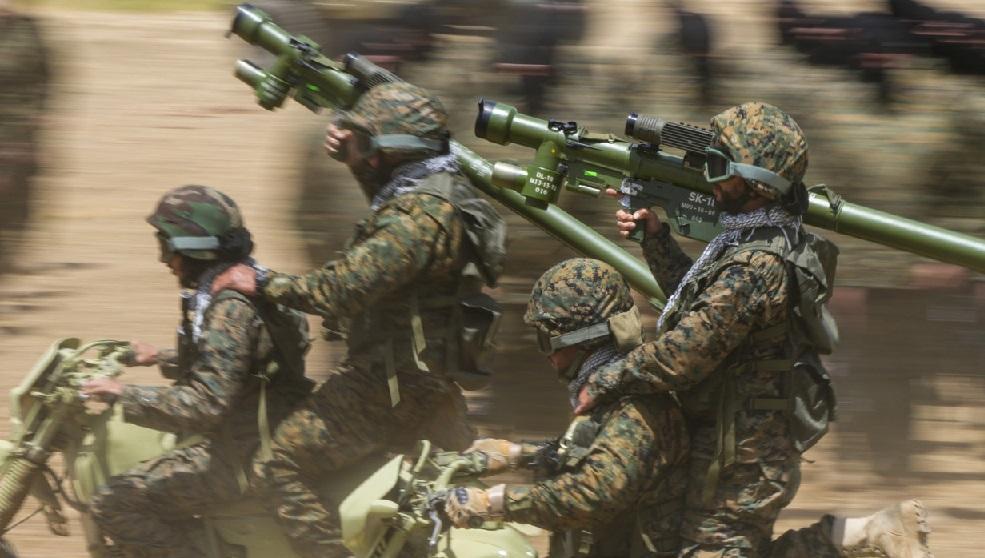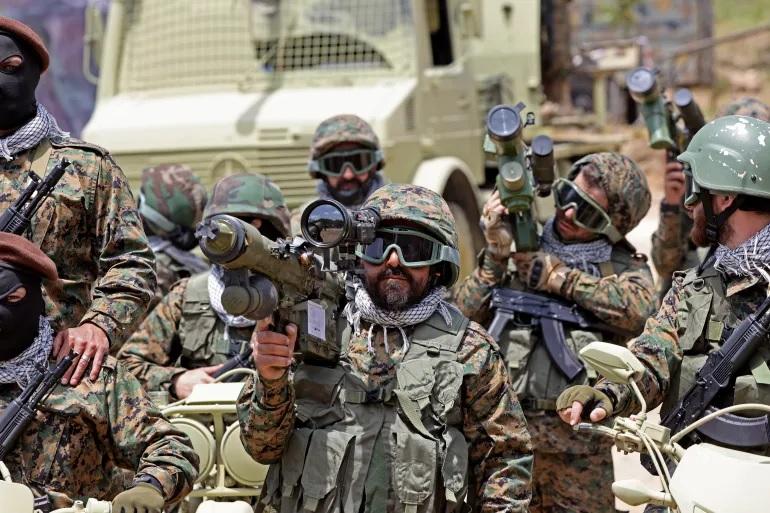Israel’s Foreign Minister Yisrael Katz met his French counterpart on Monday, warning him that “time [is] running out to find a diplomatic solution in Lebanon,” and indicating that his country was prepared to go to war if diplomacy fails.
The reason is that, since October 7, Hezbollah, the Lebanon-based group linked to Iran, has carried out hundreds of attacks on Israeli targets. Fearing an influx of militants that could potentially invade and conquer parts of the country, some 60,000 northern Israelis have opted to leave, seeking refuge in the center, away from the hostilities.
Atalia Regev, from the community of Abirim about five kilometers from Israel’s border with Lebanon, left her home on October 7, when thousands of Hamas militants invaded southern Israel, massacring an estimated 1,200 people and injuring over 5,000.
“Back then, we were sure that a northern front would [soon] open, and we, too, would face the occupation of the Galilee, a scenario that had been talked about for a long, long time. There was so much fear. So, we packed our bags, took our kids and left,” Atalia recalls.
She was not the only one. As the fighting in the south intensified, some 60,000 Israelis left communities in the north, finding refuge in the center and in Jerusalem, with the hope that the rockets of the Iran-linked militia Hezbollah would not reach them there.
 FILE PHOTO. Fighters from the Lebanese militant group Hezbollah train in Aaramta village in the Jezzine District, southern Lebanon, Sunday, May 21, 2023. © AP Photo/Hassan Ammar
FILE PHOTO. Fighters from the Lebanese militant group Hezbollah train in Aaramta village in the Jezzine District, southern Lebanon, Sunday, May 21, 2023. © AP Photo/Hassan Ammar
So far, Hezbollah’s attacks have been limited and measured. According to reports, the movement has staged more than a thousand anti-Israel assaults since the beginning of the hostilities. It has also targeted 48 border sites and at least 17 communities. But, for Regev, this was a good reason to stay where she was.
“Even when things calmed down [in the south], we realized we couldn’t go back. Our area was threatened all the time. Educational institutions for children have remained closed until recently. There were multiple power outages due to infrastructure damages [caused by attacks], and at times we had to spend long hours without electricity.”
Drums of War
Now, however, Regev fears, it may get even worse. On January 3 an explosion rocked the suburbs of Beirut, killing Salah Al Arouri, a senior Hamas leader. Although Israel didn’t claim responsibility for the attack, the finger of blame was directed at officials in West Jerusalem, with Nasrallah vowing that the assassination would not remain unanswered.
Since the killing of Al Arouri, Israel has beefed up its presence along the northern border, preparing itself for a potential full-fledged war.
Israel has a reason to worry. According to estimates, Hezbollah has an arsenal of up to 150,000 rockets and missiles. Many of them are long range, able to reach central and southern Israel. Apart from that, the Islamist group also boasts a well-trained army of fighters, and a commando unit – the Radwan force – waiting for an order to storm its enemy.
“For many years, Hezbollah has been approaching the [border with Israel] unimpeded. The events of October 7 opened our eyes and we realized that whatever happened in the south can happen in the north. With only one difference: the Radwan are much more skilled, much more experienced and much more organized,” said Regev.
But not everyone agrees with these concerns. Mohammed Hassan Sweidan, a Beirut-based expert in international affairs, claims the accumulation of weapons by Hezbollah has always been for defense purposes, not for assaults.
“The accumulation of weapons and training of Hezbollah primarily serves to sustain a balance of power necessary to deter Israel. Historical precedents demonstrate that Israel tends to expand its influence and pursue its interests in Lebanon when the country is perceived as weak. So, it is strategically advantageous for Beirut that Israel remains cautious about the potential repercussions of any future aggressive actions.”
The prospect of war, claims Sweidan, is not savored by any party within Lebanon. In recent years, the state has plunged into a deep economic crisis, triggered by Covid-19, corruption and bad political decisions. As a result, an estimated 80% of Lebanese live in poverty, 36% below the extreme-poverty line. A full-fledged confrontation with Israel would deal an even bigger blow to an already fragile economy. It could push people’s dissatisfaction up and trigger mass protests, something that Hezbollah cannot afford.
What it can afford, however, is sporadic attacks on Israeli targets, with Sweidan convinced that their actions are aimed at distracting Israel from Gaza.
Mediation Efforts
Meanwhile, and before the situation spirals out of control, the US and the European Union are exploring mediation efforts, hoping to at least defuse tensions. Last month, the region welcomed Amos Hochstein, special US Envoy and Coordinator for International Energy Affairs. Lebanon has seen a visit by Josep Borrell, EU High Representative for Foreign Affairs.
Over the weekend, he met with Israeli and Lebanese officials with the same goal. The plan he proposes is simple: firstly, Hezbollah would cease its attacks on Israel and would move its forces away from the countries’ border and about ten kilometers into Lebanese territory. Israelis from northern communities would be allowed to return to their homes and UNIFIL peacekeeping forces would be deployed.
In a second stage, Israel and Lebanon would start negotiating a permanent land border, with Washington promising a boon for Lebanese economy in exchange for concessions.
Reports suggest that there have been positive signs that the international mediation efforts would bear fruit. Hochstein is again expected in the region in the coming days, reportedly to reach a breakthrough. But Sweidan shows little optimism.
Israel is urging mediators to push Hezbollah the proposed ten kilometers into Lebanese territory, beyond the Litani River. The Islamist group, so far, is refusing to concede to these demands.
“The issue is that there is an asymmetric focus of pressure, targeting only one party of the conflict [Hezbollah], while disregarding the other [Israel]” the Lebanese expert said. “This approach will not facilitate any novel outcome...and this means that the likelihood of war hinges significantly on Israel’s actions in both Lebanon and Gaza,” he added.
Regev doesn’t believe in mediation efforts either. For her, Hezbollah is an ally of Iran and neither recognizes any Israeli presence in the area, and as such they need to be fought.
“We need to create a reality where Hezbollah is pushed beyond the Litani River. We either need a security strip or we have to deploy troops that would form some kind of a buffer zone that would protect us,” the displaced resident said.
But until that happens, she and her family will be staying away from the border, to be “on the safe side.”
Patabook News

